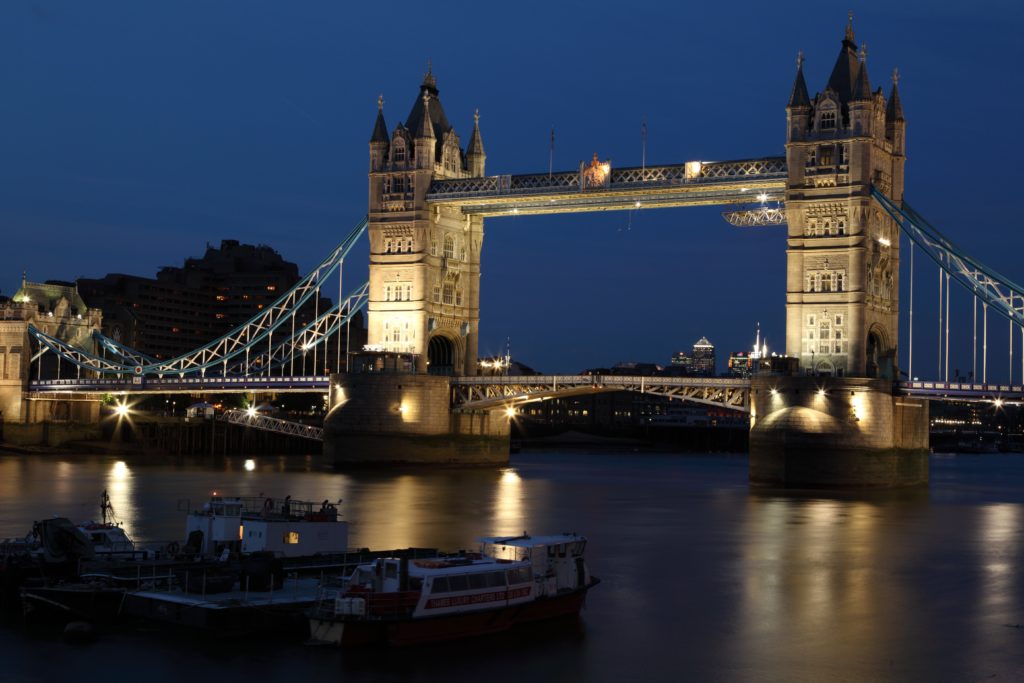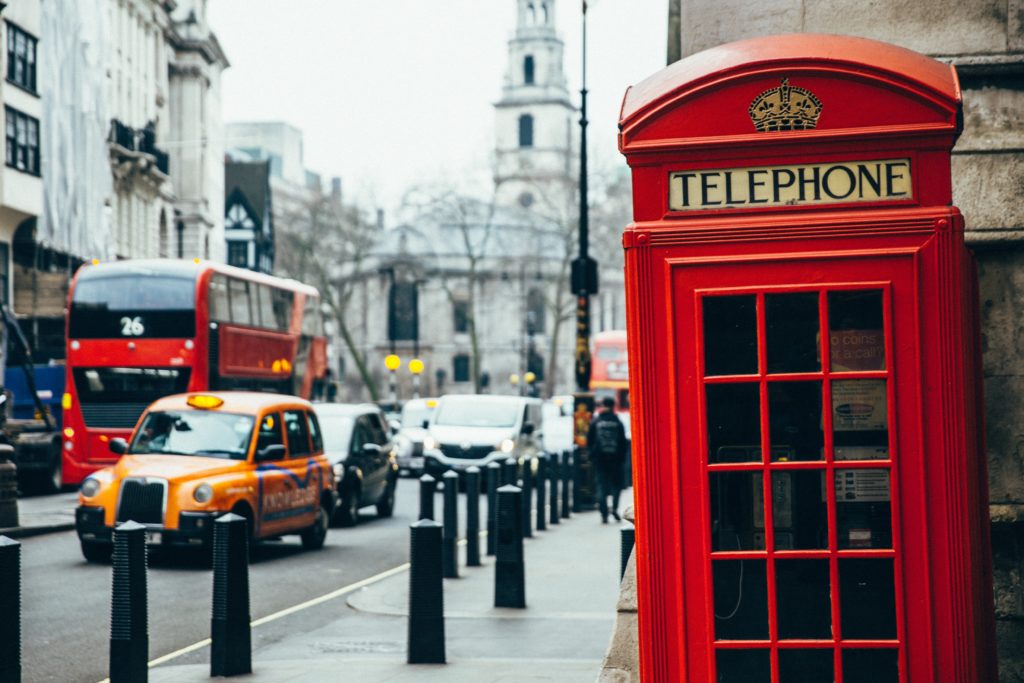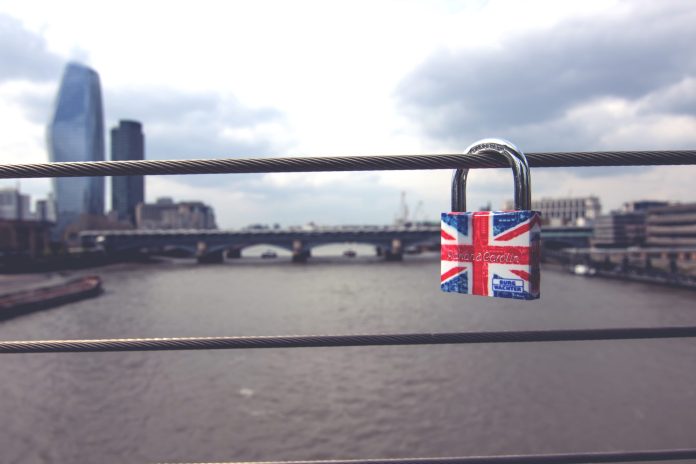I lurched off the plane with the dazed relish displayed only by passengers freshly emancipated from the uncomfortable torpor of a 16-hour flight. Today was a big day. It was 6am on February 1, 2020, and at midnight the night before the UK had finally seceded from the European Union. An important day, therefore, to land at Charles de Gaul airport in Paris. Britain was finally off, setting sail for uncharted waters under Boris Johnson. It was a new world, and although the bad food and questionable fashion sense would probably be staying, all other bets were off.
Immigration control hove into view. A young French border guard was directing traffic, and I asked her blearily whether the Brits were still allowed through the EU lane. I’d speculated whether our French hosts might consign UK passport holders to a special purgatory for countries of questionable repute, but she shrugged expressively and rolled her eyes in Gallic exasperation. “Bien sur. Why not? You have one more year. Maybe you change your mind.’
A lot could change in a year, but given Boris Johnson’s recent victory in the British election, a change of mind seemed less likely than ever. Almost exactly a year before, I’d landed in London at the height of the Brexit crisis. My trip then had come to invoke bigger questions – about identity and belonging, British snobbery and their love of country. Of whether jellied eels are actually edible; and if it was the power of English literature, and not force of arms, that had beaten the Nazis in World War 2.
When I’d emerged from the plane and my feet touched British faux marble for the first time, BREXIT CRISIS LATEST had been written in big letters across the silent TV monitors. I had breezed through immigration and customs, beamed down at by enormous Citizen-Kane-style pictures of Beefeaters and London bus drivers welcoming me to their town. I’d reflected that a lot of British people have bad teeth, which I am sure wasn’t the message they wanted to send. But I told myself to relax and enjoy the old country, I was only here for four days after all. And they were really trying this time.
Brexit. The long-coveted independence from the European Union. The right to eat Eccles cakes 24/7, Cornish pasties, and all the black pudding they wanted. No-one had seemed to want to talk about it though. My British friends had winced when Brexit was mentioned, and I could tell even mentioning it was painful for them. After ten minutes of watching the BBC in between meetings, I understood why. Nobody had any idea what was going on and everyone had an opinion. Two years of this must have been hell.
Like most conferences, there had been little time to sightsee, and so over the next few days, I and a friend had explored the West End on foot in the pre-dawn darkness. Big Ben was shrouded in scaffolding, but the statue of Churchill still glowered benignly across the square to the Houses of Parliament. Things looked mostly the same. London buses were still red, but there seemed to be fewer black cabs prowling the streets.
“It’s all fucked cos of Uber, mate,” said my 75-year-old cab driver (he volunteered his age early on). His grandson, he said, had wanted to be a black cab driver like him, and had even done ‘The Knowledge’, but there was no money in it now. He’d given it up to be a personal trainer in Bermondsey.
Like one of the glutinous desserts at which British cuisine excels, his ordinary Englishness was comforting. Even though I grew up in Scotland, the self-deprecating, chatty cabby was part of the way the Brits see themselves. I’d asked him about Brexit, and he said he’d voted for leaving, but it had gone off the rails. Theresa May? “Lost the plot, mate.” Michael Gove? “Greedy twat, mate.” Boris Johnson? “Bloody pillock, son.” I remember thinking that it was nice to see that the Brits held their politicians in the same high regard that Australians do.
Despite the cockney bonhomie from our driver, it’s a sad fact that the English have a special genius for snobbery. For example: Scots are tight-fisted and prone to violence, and the Welsh talk too much and have an indecipherable language. The Irish are basically insane and are drunks anyway. The French are smug and superior and like the Italians, they surrender at the drop of a hat. The Germans are the best of the Europeans, being hardworking and highly organised, but after all, they lost the war twice.
For a shorthand version of this, you can’t go past Basil Fawlty from the iconic British comedy series Fawlty Towers. With his angular frame and clipped Oxbridge accent, Fawlty was a snob of the highest order. Relentlessly bullying hapless Spanish waiter Manuel, he was obsequious to those he considered his betters and unbearably rude to those who were not. The world, and particularly Europe, immediately recognised Basil as an epitome of Englishness, and Fawlty Towers was shown in 70 countries worldwide.
The flip side of this, also evident in my cabby, was the positive sense of Britishness that people feel. As a child in the ’70s, like a lot of Brits, I’d absorbed the history of World War 2 through black and white propaganda films still showing on the BBC. In one, the jowly Nazi intelligence chief (who inexplicably wore riding jodhpurs during interrogations) is defeated in his goal of understanding the mind of the enemy by the sonnets of Shakespeare and the nonsense poetry of Lewis Carroll, as he reads the opening verse from Jabberwocky to a captured British Commando.
“‘Twas brillig, and the slithy toves
Did gyre and gimble in the wabe:
All mimsy were the borogoves,
And the mome raths outgrabe.”’
The evil Nazi is bamboozled: “Vott is this SLITHY TOVE? Vott is this GYRE und GIMBLE in der WABE!!!?” he thunders. “It makes no sense!!!.”
His captive lifts a nonchalant eyebrow and replies in a cut-glass upper-crust accent “Of course, dear boy. That’s the point.”
The implication was that an arcane sense of humour and a cheerful willingness to be misunderstood by foreigners would ultimately win the day. And call me biased, but I’d still put my money on Shakespeare as the winner in a no-holds-barred literary cage fight with Goethe any day.
The cab had hit a traffic jam and I’d watched in admiration as my driver weaved his way through a series of back lanes, go briefly the wrong way along a one-way street and come out behind my hotel. This was ‘The Knowledge’ at work. Any Uber driver would still have been keying in the address and thinking about surge pricing.
The British revere WW2 not only for the story it transmits – standing alone against fascism, doing the right thing and fighting on although they were almost certain to be defeated – but because it was a time when they all felt that they were on the same team. Most British families have a visceral connection to that war. For my own family, with my grandfather away fighting with the ‘Desert Rats’ in North Africa, everyone had to do their bit. At 17 my mum became a bus conductress in London at the height of the Blitz. In the blackout she’d walk through the rubble-strewn streets with a torch, calling to the driver if the road ahead had been bombed.
My two uncles were evacuated from London with thousands of other children. I have a picture of them standing uncertainly on the platform, a label with their name tied around their necks with string. In the second phase of the Blitz, when the Germans were launching unmanned V1 flying bombs from France, a ‘Doodlebug’ blew up half the street where the family lived. Family legend had that it hit two doors along, but the blast all went in one direction, away from our terrace. Many of our neighbours were killed.
But I’d lived away for a long time. I’d fled Margaret Thatcher’s economic devastation of the North 25 years before. The Britain I grew up in was the Britain that voted for Brexit, and I intuitively understood the ‘Brexiteers’ much better than I did the ‘Remainers’. Even if I could have voted in the referendum, I didn’t think I had the right to. The Britain of today, infinitely more cosmopolitan, and prosperous enough to be a magnet for a continent’s youth, was something I knew about only at second hand.

A neutral observer might well make the point that WW2 was a very long time ago, and so why this deep mistrust of the European Union? The answer is that the ’70s and ’80s in Britain were profoundly Eurosceptical. When you hear someone described as a Eurosceptic, there a good chance that at the heart of their mistrust for Europe is the idea that Europe is wasteful, arcanely bureaucratic, and profoundly anti-British. This was the prevailing view of the EU’s precursor, the Common Market, in the deeply distrustful British media of the ’70s and ’80s.
The biggest national current affairs show at the time was Nationwide on the BBC. Screening at 6 pm every day, the overall tone of its coverage on Europe can best be observed by looking at its annual April Fool’s Day ‘joke story’. These often had a European angle. There was the Bumper Swiss Spaghetti harvest, with live footage of clog-wearing Swiss farmers climbing ladders to harvest from spaghetti trees. Then there was the one about Dutch Elm disease, a fungal parasite that destroyed many of Britain’s Elms. Cutting a swathe through Scotland, it was believed to have jumped the species barrier and was causing redheads to turn blonde.
My favourite, however, was a story about EU bureaucrats, enforcing new EU rules on carrot sizes. All British carrots were to be measured, and any that did not meet EU guidelines were to be immediately destroyed. The article then cut to a beret-wearing European in a hooped shirt and a rakish red scarf, pictured in a British garden. As he muttered disgustedly in French and threw carrots over his shoulder, exclaiming “Zut Alors!” and “Sacre Bleu!”, an English housewife and a powerless British Bobby looked on helplessly at this latest EU outrage.
 With many people not realising this was a spoof, the phones ran hot to the BBC in patriotic fervour for the defence of British vegetables. Letters were written to MPs. Questions were asked in parliament. In the days before social media, it went viral into British consciousness. It was a confirmation of their darkest suspicions about the European Union, and so it must be true, mustn’t it?
With many people not realising this was a spoof, the phones ran hot to the BBC in patriotic fervour for the defence of British vegetables. Letters were written to MPs. Questions were asked in parliament. In the days before social media, it went viral into British consciousness. It was a confirmation of their darkest suspicions about the European Union, and so it must be true, mustn’t it?
In Fawlty Towers, Fawlty’s bossy wife Sybil, who considered herself superior to Basil despite having miscalculated so badly as to marry him in the first place, would make excuses about the confused Spanish waiter Manuel, to exasperated guests. “I’m so sorry,” she would confide nasally, “he’s from Barcelona!”
I learned later that when Fawlty Towers was dubbed into Spanish, they cleverly changed Manuel into an Italian called Marco so as not to upset the Spanish viewers. Which just goes to show that snobbery about fellow Europeans is not an exclusively English preserve, just something that they tend to excel at.
Back in post-Brexit 2020, the news had moved on. The Brexiteers had the wind back in their sails and were squaring up for trade negotiations with a Europe that had just realised it was 15 per cent smaller. It seemed the manoeuvring had already begun when a few of my English colleagues arrived late on the first day, muttering darkly about being sent to the long queue by French immigration as they were “no longer European”. It seemed I had been lucky.
On the 26-hour journey back to Australia, alone with my thoughts and 400 fellow passengers, I dutifully ate the food thrown at me and watched movies on which I couldn’t concentrate. Instead, my mind kept returning to Britain and Brexit, and what it all meant. Was this going to be the end of the UK as we know it? Would there be an economic collapse and food riots in the post-apocalyptic streets of London?
At last, somewhere over the Indian Ocean, I decided that it was going to be alright. Whether the British left the EU or not this was the country that, armed with little more than an absurd sense of humour and the basic decency of its people, had seen off one of the nastiest tyrannies in history. However Brexit actually turned out, they would still have bad food and great literature, and so perhaps the last word on understanding the Brexit saga should go to our upper-crust commando and his confused Nazi captor.
“Vott is this SLITHY TOVE? Vott is this GYRE und GIMBLE in der WABE?!! It makes no sense!!”
To which inevitably the British would cheerfully respond: “Of course, dear boy. That’s the point.”


